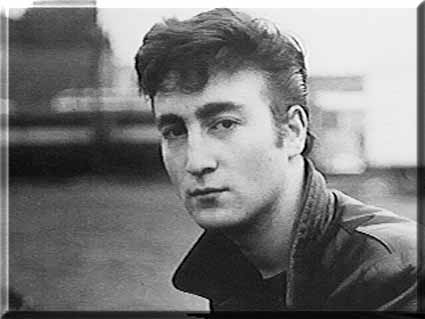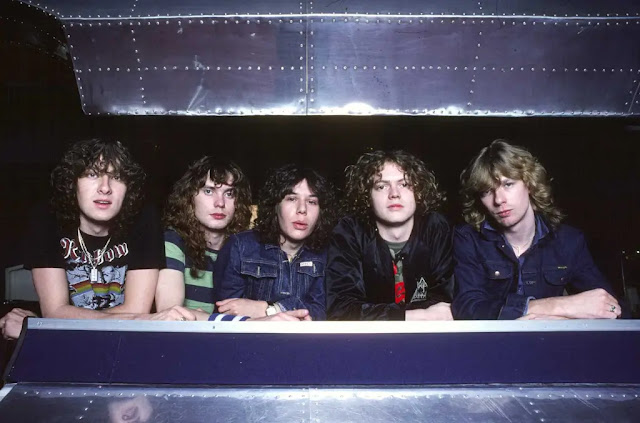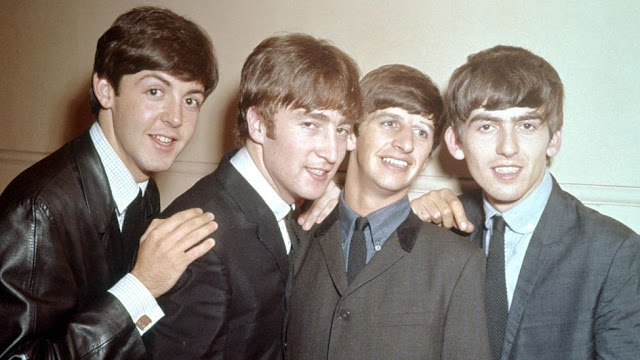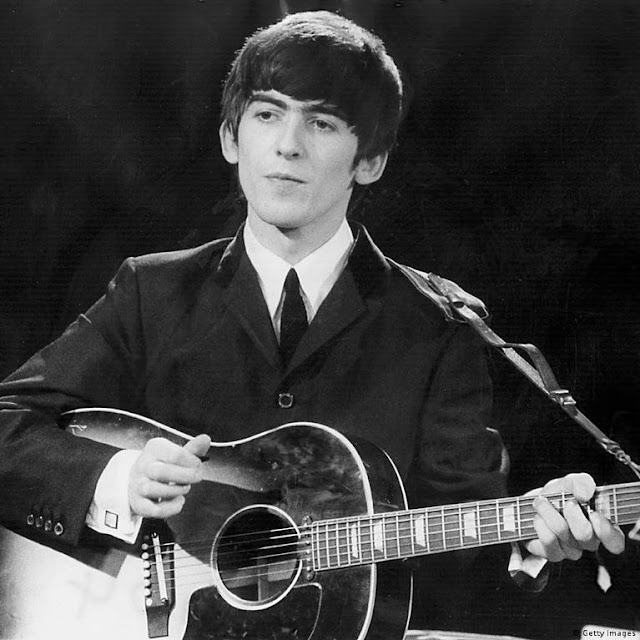John Lennon before The Beatles History of The Beatles Part 1
John Winston Lennon was born on October 9, 1940 at 6:30 pm in Liverpool, and took his middle name after Winston Churchill, then Prime Minister of the British government. When John was six years old, he was raised not by his mother but by an aunt named Mimi. Julia was portrayed by Mimi as an unfaithful or unhappy wife, but remained unfaithful to her husband after he went to sea. Mimi lived with her husband George in a house called Mendips at 151 Menlove Avenue in Woolton, a suburb of Liverpool. Her mother was a housewife, had comedic talent, and sang. Not professionally, but occasionally sang in pubs and other venues. She had a good voice. She sang Disney songs. My parents divorced when I was four years old and from then on I lived with my aunt Mimi. Mimi told me my parents split up. She never said anything against my father or mother. She quickly forgot about my father and it was as if he was dead. I saw my mother from time to time, but I never lost my love for her. For a long time I did not realize that my mother lived five or ten miles from me, but I remembered her often. My family consisted of five women. Five strong, intelligent, beautiful women, five sisters. One of them was my mother. My mother couldn't cope with life. She was the youngest of five children and could not take care of me. He was musical as a child. He was aggressive because he wanted to be popular, he wanted to be a leader. It seemed more attractive to him than being a wimp. He wanted everyone to do what I told them to, laugh at my jokes, and accept my leadership. He only got one spanking from Mimi - for taking money from her purse. He's always picked up a bit on things like Dinky's, but I think they're going to take too much today. When he was 12, he thought he was a genius, but no one noticed. He thought, 'I'm either a genius or a madman. Who I really am. I can't be crazy because they didn't put me in solitary confinement so I'm a genius. It is known that a genius is a kind of madman. We all think alike, but I was too shy. I also didn't believe in my guitar playing. If there is a genius, I am. If not, it's hard. I was thinking as a kid, writing poems and painting pictures. in the clouds throughout the school. I was in a trance for 20 years because school was boring. If I wasn't in a trance, I must have been out of school - at the cinema or somewhere around. When he was 15, he thought to himself, "Wouldn't it be great if I got out of Liverpool and become someone famous and rich? He wanted to write Alice in the Tap." Czarów", but when you think: "What I wouldn't do, I can't beat Leonard anyway", you start to wonder: "Why do this?". Many people have suffered more than me and have done better things.John
felt he had a terrible sense of humor. Lennon always said he had a
happy childhood. He was aggressive but never down. He always laughed. In
the 1950s he had a good relationship with Uncle George, Mimi's husband.
He smoked and drank alcohol from an early age. He
wrote a lot of poetry and poems. Lennon decided to meet his mother, who
introduced him to the guitar and the world of Rock and Roll. John's
first girlfriend was named Brigitte Bardot. At the age of 12, John
graduated from Dovedale Primary School and enrolled at Quarry Bank High
School on Harthill Road, about two miles from Menlove Avenue. The
traditional rigor was in force there: teachers in robes, older students
keeping order, flogging for violating the rules. Only John Lennon and
Pete Shotton went to Quarry out of John Lennon's whole pack of puppies.
Ivan Vaughan, John's friend from Dovedale, went to another high school,
Liverpool Institute (where he met Paul), Nigel Walley to Bluecoat School
near Penny Lane. John's mother, Julia, introduced him to artists such
as Elvis Presley, Little Richard, Buddy Holly, etc... In 1956, the Teddy
boys appeared unexpectedly. Young men in costumes as bizarre as they
were ominous appeared on the streets of Britain. Velvet-trimmed long
jackets, large-collared shirts, and slim-fitting trousers were partly
inspired by Edwardian fashion - hence the name Teddy boy - and partly by
gunslingers and gamblers in Hollywood movies. In the gray reality of
post-war Britain, such an outfit seemed completely crazy. At the sight
of hairstyles - in a country where hair cut short like in the army was
the norm (still) - people rubbed their eyes in amazement, because Teddy
boys wore a pomaded long lock that fell over the forehead, which they
constantly combed back on either side of their heads, creating something
which resembled a duck's rump. Garish pink or orange socks and
high-soled shoes completed the outfit. And Teddy boy loved the 'cafes'
springing up like mushrooms after the rain, where the jukeboxes were no
longer playing widely respected jazz but rock and roll. The director of
Quarry Bank High School considered John Lennon and Pete Shotton to be
the worst Teddy boys among his charges. Leaving after school as a
punishment, flogging, or even temporary suspension of student rights -
nothing seemed to impress the bespectacled man with a cheeky face and
his friend with shaggy blond hair. For John, as for most
fifteen-year-olds, rock and roll was initially just a curiosity from the
world of slightly older boys. Even when Bill Halley's Rock Around The
Clock, Bill Halley's first film, hit the UK, John went to see it but to
his disappointment no fight broke out in the room... All he saw was some
fat man in a plaid jacket with a curl falling over his forehead, plus
saxophones and double basses like in any band playing to dance in dance
booths. But soon after, one of his friends played Heartbreak Hotel for
him. As Aunt Mimi recalled: ...'since then I haven't had a moment's
peace. It was still just Elvis Presley, Presley, Presley. Finally I told
him, "That's fine John, but I don't want this Elvis for breakfast,
lunch and dinner." Rock and Roll was gaining popularity thanks to Radu
Luxemburg, but the reception of this commercial station - broadcasting
in English from 20.00 was so bad that it was impossible to record it.
Then the skiffle appeared. Late at night, a new message reached the
hidden radios. The banjo guy in the Chris Barber Jazz Band started his
own little band and recorded 'Rock Island Line', a popular
Depression-era song, maybe even older. The song was presented as skiff,
poor jazz coming from poor southern states, where you can play anything.
The song caused a frenzy across the country. Performer Tony - or
"Lonnue" - Donegan instantly became a star. The poor instrumentation of
the band and the songs showed that anyone can start a band and anyone
can sing and play anything. Of course, thanks to Elvis Presley, the
guitar was the biggest craze, and of course, John couldn't resist him.
Together with Pete, they form the Quarry Men.




Komentarze
Prześlij komentarz